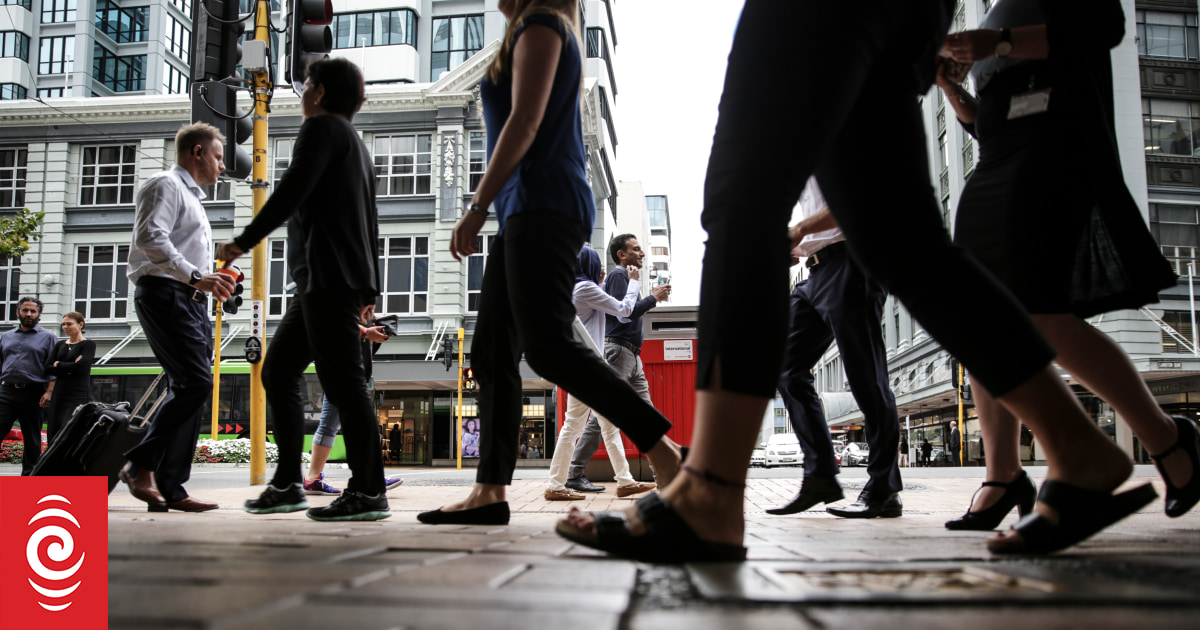Auckland is grappling with a homelessness crisis. (File photo)
Photo: RNZ / Richard Tindiller
Like ‘tent city’ is how a man living on the streets describes part of Auckland CBD, as the city grapples with a homelessness crisis.
Auckland Council said homelessness had gone up 90 percent in the city since September last year, prompting calls for more support for those sleeping rough.
The council’s community committee said government policy changes were making it harder for people to access emergency housing.
Checkpoint spoke to people living on the street in Auckland’s city centre who said the winter months had been “gruelling”.
As night settled on a chilly Auckland evening, the city’s homeless were getting ready for the night ahead.
Walking the city streets, improvised shelters made from carboard, patchy tarpaulins and umbrellas were sitting under trees, along footpaths and under shopfronts. Many congregated around the city library.
Simon’s been homeless on and off throughout his life. He said the streets were in worse shape than they had been for a long time. He’s seeing lots of new faces, including children.
“The library’s like tent city, that’s only people you see. You don’t see three quarters of them, they keep to themselves.
“Some people that keep to themselves don’t speak to anyone for years, they live under motorways and bridges, we get flushed out of there too.”
Simon said there was a time he was living in emergency accommodation, but he was kicked out. He said the winter months had been tough.
A man carrying all of his belongings on Auckland’s Queen St. (File photo)
Photo: RNZ / Bailey Brannon
“There’s no night shelter and it’s cold out here, man, it’s really cold.
“I know people that are working and living on the street, with sleeping bags.”
Franklin grew up in Gisborne before moving to Queensland when he was 18. But at the start of this year he was deported for selling methamphetamine.
“High School, got kicked out third form and it ws pretty rough for me and I started getting myself into trouble.
“I worked on a farm for a bit, then I decided to move to Australia to do boxing, and I wrecked it.”
Franklin said he’d been homeless since being sent back to Aotearoa, where he doesn’t have the support of his family.
Homeless shelters outside Auckland’s City Mission. (File photo)
Photo: RNZ / Amy Williams
“That’s the only thing I came with, I had a skateboard and a sleeping bag. They asked me where’s your clothes? The only clothes I came with was a black jacket and shoes.”
Molesi was making himself comfortable in the doorway of a church on Pitt St as it began to get dark.
“It’s my bedding and my clothes, that’s all. But the rest of my clothes are all gone, I gave them to others.”
“I’m comfortable here, I’ve got two sheets underneath [away] from the cold concrete, so I don’t get any sicknesses.”
Molesi said he became homeless because he couldn’t keep up with the rent at the place he was staying.
“It’s just too expensive and I only had 80 dollars left from my benefit.”
A person’s belongings tucked into a doorway in Auckland’s CBD. (File photo)
Photo: RNZ / Luke McPake
Agnes Magele from Auckland Against Poverty said they’re seeing a wider range of people reaching out for help.
She’s urging the government to implement Duty to Assist legislation – placing responsibility on government agencies to prevent homelessness and support people into permanent housing.
“People who were okay before are now struggling and now are in the worst position that they’ve ever seen themselves.”
Last week the government announced they’re expanding support for rough sleepers and to help them into social housing.
The Housing First Programme would be expanded, and $10 million of additional funding would be injected into support services for people sleeping rough.
The Ministry of Social Development staff were to use greater discretion when assessing emergency housing applications.
Sign up for Ngā Pitopito Kōrero, a daily newsletter curated by our editors and delivered straight to your inbox every weekday.

